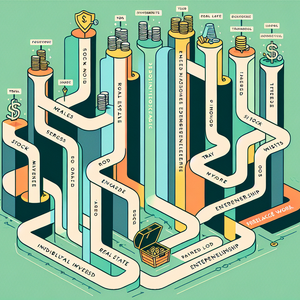The Rise of Citizen Journalism

Citizen journalism refers to the act of ordinary people playing an active role in the process of collecting, reporting, and analyzing news and information. With social media platforms like Twitter, Facebook, and Instagram enabling immediate and widespread sharing, anyone with a smartphone can document events in real-time. This democratization of information has led to a more diverse range of voices and perspectives in the media landscape. The events surrounding the Arab Spring in 2010-2011 serve as a pivotal example of the power of citizen journalism. Citizens in countries like Tunisia, Egypt, and Libya used social media to report on protests, government crackdowns, and personal experiences, often reaching global audiences before traditional news outlets could. This not only highlighted the immediacy of citizen-generated content but also underscored the significant role these individuals played in shaping narratives during critical moments in history.
Implications for Traditional Media
The rise of citizen journalism presents both opportunities and challenges for established media outlets like BBC News. On one hand, citizen journalists can provide raw, unfiltered accounts of events, often filling gaps left by traditional reporting. For instance, during natural disasters or civil unrest, live updates from citizens on the ground can be invaluable, allowing news organizations to provide timely information to their audiences. However, the influx of information from non-professional sources also raises questions about credibility and reliability. Unlike traditional journalists, who adhere to established ethical standards and fact-checking protocols, citizen journalists may lack the training necessary to accurately report news. This has led to concerns about the spread of misinformation and "fake news," as sensationalism can often overshadow factual reporting. The BBC has faced these challenges head-on by emphasizing the importance of verifying information from citizen journalists. By doing so, they can harness the immediacy of citizen-generated content while ensuring that their reporting maintains a high standard of accuracy and integrity.
The Role of Social Media
Social media platforms have become a double-edged sword in the realm of journalism. They empower citizen journalists but also create an environment prone to misinformation. Algorithms on platforms like Facebook and Twitter often prioritize engagement over accuracy, leading to the viral spread of misleading stories. This has prompted traditional media organizations, including BBC News, to rethink their strategies in an era where the line between professional journalists and citizen reporters is increasingly blurred. In response, many traditional media outlets are incorporating citizen-generated content into their reporting. BBC News, for example, has launched initiatives encouraging audience participation, such as soliciting eyewitness accounts and perspectives from viewers during significant events. This not only enriches their coverage but also fosters a sense of community engagement and trust. Moreover, platforms like Twitter have become essential tools for journalists, enabling them to crowdsource information during breaking news events. The immediacy of social media allows for real-time updates, bridging the gap between citizen journalists and traditional news reporting.
Maintaining Credibility in the Age of Citizen Journalism
To navigate the challenges posed by citizen journalism, traditional media must prioritize transparency and rigorous fact-checking. As misinformation spreads rapidly, media organizations have a responsibility to verify claims made by citizen journalists before broadcasting them to the public. This can involve collaboration with citizen reporters, utilizing their insights while ensuring the information presented is accurate. Additionally, media literacy programs can play a crucial role in educating the public about the importance of verifying information sources. By empowering audiences to discern credible news from misinformation, traditional media can help mitigate the negative impacts of citizen journalism while still embracing its potential benefits. Organizations like BBC News can implement workshops and online resources that teach audiences how to evaluate the credibility of news sources and identify potential biases. Such initiatives not only enhance public understanding but also reinforce the role of traditional media as a reliable source of information.
The rise of citizen journalism signifies a profound shift in the media landscape, challenging traditional news outlets to adapt and evolve. While it offers opportunities for diverse voices and real-time reporting, it also poses significant challenges regarding credibility and misinformation. As citizen journalists continue to reshape the way news is reported, it is essential for organizations like BBC News to strike a balance between embracing this new landscape and upholding the standards of responsible journalism. By doing so, they can harness the power of citizen voices while ensuring that the integrity of news reporting remains intact. In a world inundated with information, the partnership between citizen and professional journalists can pave the way for a more informed and engaged public.
Community Engagement Specialist
Core Responsibilities
Facilitate communication between media organizations and the community to encourage participation in news reporting.
Develop and implement outreach strategies to engage citizen journalists and gather local stories.
Analyze community feedback to inform storytelling and coverage decisions.
Required Skills
Strong interpersonal and communication skills to effectively connect with diverse audiences.
Experience in community organizing or public relations.
Proficiency in social media platforms and digital communication tools.
Common Employers
Local news outlets
nonprofit organizations
public media stations
Social Media Journalist
Core Responsibilities
Create and curate news content for various social media platforms, focusing on real-time reporting and audience interaction.
Monitor social media trends and user-generated content to identify potential news stories.
Collaborate with traditional journalists to integrate citizen-generated information into broader news narratives.
Required Skills
Excellent writing and editing skills tailored for social media formats.
Familiarity with social media analytics tools to gauge audience engagement.
Understanding of journalistic ethics and the ability to fact-check information rapidly.
Common Employers
News organizations
digital media companies
content marketing agencies
Media Literacy Educator
Core Responsibilities
Design and implement educational programs aimed at enhancing public understanding of media literacy and information verification.
Conduct workshops and seminars for various audiences on how to discern credible sources from misinformation.
Collaborate with schools, community organizations, and media outlets to promote media literacy initiatives.
Required Skills
Strong teaching and public speaking abilities.
Background in education, communication, or journalism.
Familiarity with current misinformation trends and media ethics.
Common Employers
Educational institutions
nonprofit organizations
media literacy advocacy groups
Digital Content Producer
Core Responsibilities
Oversee the production of multimedia content, including videos, podcasts, and articles, focused on citizen journalism.
Collaborate with citizen journalists to create compelling narratives that highlight community stories.
Ensure that all content adheres to journalistic standards and is fact-checked.
Required Skills
Proficiency in multimedia editing software and content management systems.
Strong storytelling abilities and experience in digital production.
Ability to work under tight deadlines and manage multiple projects.
Common Employers
Online media platforms
digital news startups
content creation agencies
Verification Analyst
Core Responsibilities
Assess the credibility of information and sources submitted by citizen journalists and the general public.
Develop and apply verification protocols to ensure the accuracy of news content before publication.
Collaborate with reporters to provide context and background on user-generated content.
Required Skills
Strong analytical skills and attention to detail in assessing information sources.
Familiarity with fact-checking tools and techniques.
Experience in journalism or information verification is preferred.
Common Employers
News organizations
fact-checking organizations
media watchdog groups


